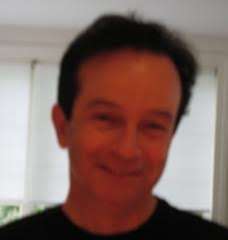Thanks to an award-winning Hulu series and a troubling political climate, Margaret Atwood’s 1985 novel The Handmaid’s Tale now resonates in popular culture as never before. The Boston Lyric Opera’s world premiere of a new edition of Poul Ruders and Paul Bentley’s 2000 adaptation of the novel resonates even further by bringing its story to the place where it unfolds, Harvard Square, and the university gymnasium the Republic of Gilead repurposed as The Red Center for the indoctrination of fertile women as subservient sexual surrogates. “I tell therefore you are,” sings Offred as the opera opens. Anne Bogart and movement director Shura Baryshnikov take that feedback loop and run with it in a harrowing, gripping production where even body language speaks volumes and the audience is a not only a spectator but a complicit participant.
The Harvard venue began life in 1926 as an all-purpose arena with a distinctive hip roof of opaque glass panels. It now houses the basketball program. The BLO’s installation took up the length and width of the court with the retractable bleachers retained on three sides. An enclosure for the 62-member orchestra replaced the fourth bank of bleachers. Screens, looking like granite walls, hung behind the orchestra and on the wall opposite. With projections of the executed, they became Gilead’s infamous Hanging Wall. All the action played out in another enclosure, with padded benches along its perimeter, in front of the orchestra. Acoustician Carl Rosenberg took measures to mitigate the adverse effects of the high, glass roof, yet the space still seemed to give a harsher, sharper edge to the upper range of both instruments and singers and attenuate some voices.
Scenes were minimally and fluidly set and struck thanks to rollers and the offices of Handmaids and Guardians, allowing for a dream-like flow between the disjointed scenes in Gilead and flashbacks to the “Time Before” which propel Atwood’s narrative and often overlap or occupy the stage simultaneously in the opera.
This revision jettisons the novel’s framing device, a 2195 Gilead Studies symposium. Now, Offred is the first and last voice heard. Dressed in drab street clothes, she unobtrusively seats herself on the bench facing the orchestra a good ten minutes before the action begins. At the end, she strips to her slip leaving her Handmaid uniform in a pile and sits in the same place, lit by a spot in the fading light. These are the only moments of repose allowed her. Rare is the scene where Offred is not singing. She carries the opera on her back. Jennifer Johnson Cano’s stamina and total commitment were exceptional. A probing singing-actress (her laugh closing Act 1 was chilling), she created a public and private self, her demeanor and expression reflecting the corseted, cooler music of her Gilead scenes and the freer, more high flying line when alone or lost in memory. In one of the more moving moments of the afternoon, she and Felicia Gavilanes, Offred’s younger self in the “Time Before” flashbacks, duetted in the second act yearning and questioning from opposite corners of the stage, finishing each other’s thoughts, but achieving no resolution.
Caroline Worra’s Aunt Lydia combined a surfeit of religious fanaticism with the affect of a dominatrix, a BDSM Queen of the Night. Head held high, eyes afire with zeal, her voice flashed with coloratura and ecstatic leaps into the upper register as she pealed Gilead’s perversion of the Beatitudes and otherwise preached the party line. Other standouts in a uniformly strong cast- Kathryn Skemp Moran’s unhinged Janine, Chelsea Basler as Offred’s best friend and fugitive Handmaid, the confident counter-zealotry of Michelle Trainor’s rebel Ofglen, and the banality of evil personified in David Cushing’s Scrabble-loving Commander. A special place in Hell would be reserved for every woman’s nightmare, the creepy ob/gyn of Matthew Di Battista.
Shades of Alban Berg, minimalism, and expressionism plus fragments of Bach, 19th-century hymns, and 20th-century popular music tessellate Ruders’ prismatic score. Though the demarcation is not strict, Gilead’s music is primarily atonal, the Time Before’s tonal. These two worlds occasionally clash to great effect as when Amazing Grace – a recurring theme – plays against the scything music of a particularly savage scene. David Angus brought the precision and coordination required for the opera to succeed in this space and a variety of inflection and dramatic emphasis to the relentless, propulsive Gilead music.
At the end, the most enthusiastic of many enthusiastic ovations was for Margaret Atwood herself. In writing her “speculative fiction” she extrapolated from the political and social trends of the Reagan era. Thirty-five years on, in the thick of the Trump era, she will publish a sequel.




